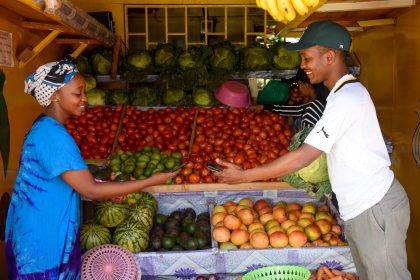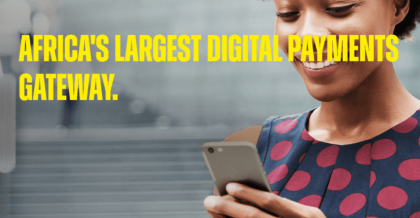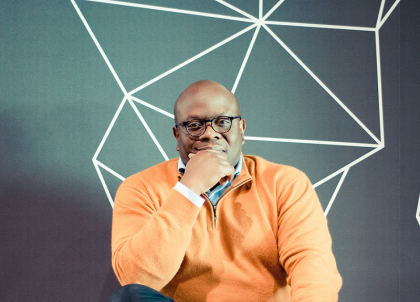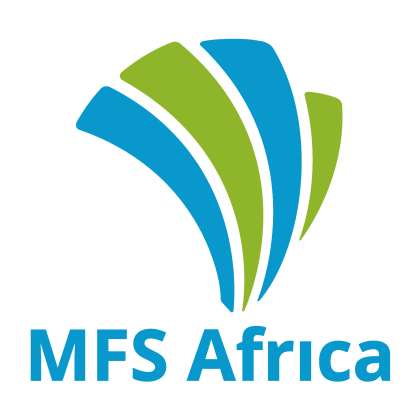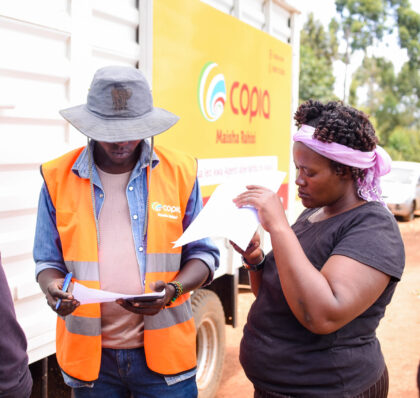
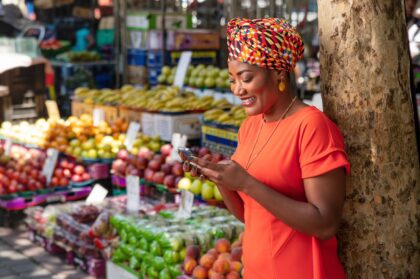
MFS Africa enables the next step in Africa’s mobile money revolution
Across Africa, mobile money services have mushroomed since their invention in 2007. However, transferring money between the different providers and across national borders has remained challenging. Fast-growing fintech company MFS Africa connects the different payment schemes across more than 35 African markets, helping other companies to scale.
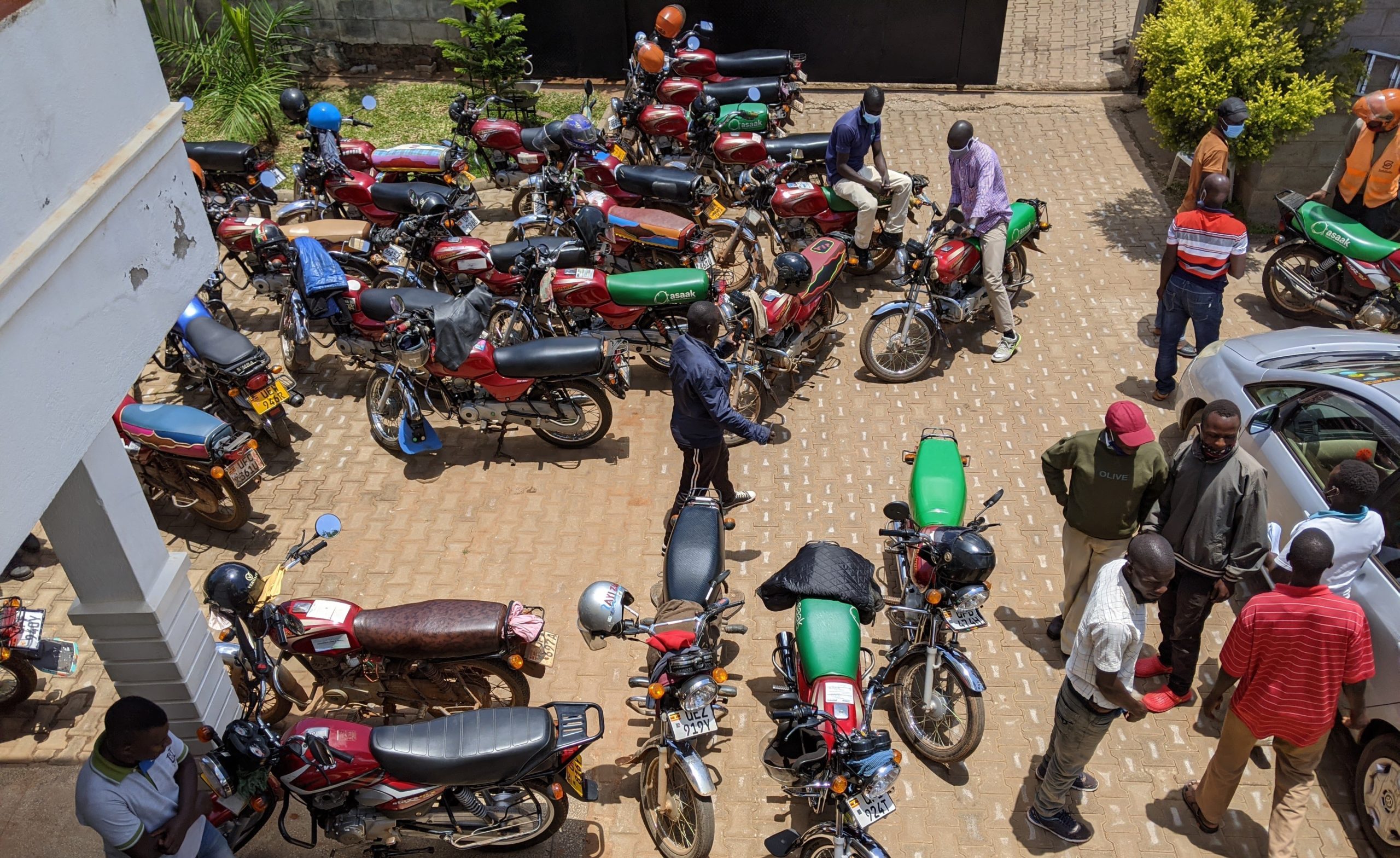
Financial products are in high demand in African countries, where only a fraction of the population has access to a bank account or other means of credit. Mobile money has made it much easier for people to transfer money to each other. However, with multiple payment companies such as MTN, Airtel, and Africell, collecting and disbursing payments via all these different systems proved to be challenging, especially for small businesses.
One of the companies that experienced this is M-Kopa. They distribute solar power systems and mobile phones on credit: customers then pay off the product in instalments. ‘Initially we used regular mobile money services to give out loans’, recalls Martin Owako of M-Kopa, which is active in four African countries including Uganda. ‘However, it was hard to do payments in bulk, since it required a lot of work from our side. Later we started working with MFS Africa, through their Beyonic business portal, which made our operations run much smoother.’ The transactions that M-Kopa carries out are manyfold: ‘In case the client buys a mobile telephone worth 1 million Ugandan shillings (EUR 260), there is a deposit of 150,000 shillings. After that, the client pays us a small amount every day and after 6 to 12 months it is theirs. This involves a lot of transactions. Then we have agents all across the country: they all need to send and receive money on a daily basis. These agents get a commission on every product sold,’ Mr. Owako explained.
Phones, being hard assets, are a less risky and more profitable business then solar energy systems, according to Mr. Owako. ‘After all, the phone keeps its value. And in case the client defaults, we can lock the telephone. Therefore, customers are very motived to make sure this doesn’t happen to them.’
Another company selling hard assets on credit is Asaak, a rapidly growing mobility company that has been active in Uganda since 2019. In 2022, the company received USD 30 million in financing from impact investors in the US. ‘Asaak has already supplied 8,000 motor bikes to clients in Uganda,’ explained CEO and founder Kaivan Sattar.
You can find motorcycles on every street corner of Uganda: they give passengers rides for a fee and are the most popular – and in rural areas often the only available – mode of public transport. First introduced to help people travel through no-man’s-land between Uganda and Kenya, the motorbikes were called border-border, later simply boda boda. ‘A lot of boda boda drivers don’t own their vehicle. Instead, they pay rent to the owners, an amount that can take up to half of their daily profit, but they never even dream of owning it. At Asaak, we ask for a 15% down payment, after which drivers start to repay the loan daily for about two years. After that, they own the motorcycle and there is no need to rent it anymore. This greatly increases the driver’s income,’ Mr. Sattar explained.
MFS Africa’s services are mainly used by companies, according to Doreen Lukandwa, Vice President Global Enterprise at MFS Africa. ‘Sending money across borders and across networks is very easy via our network. We therefore serve a lot of companies from individual markets such as lending businesses, agritechs to international NGOs,’ explained Ms. Lukandwa. ‘Think of payment of salaries, collecting payments of loans, etcetera. From the time I joined MFS Africa three years ago, the company has grown to provide payment solutions to our partners across 35 African countries with over 700 staff members.’
Although fintech companies are growing rapidly across Africa, they are not likely to replace traditional banks. ‘If you look at Kenya, you see that mobile money services have a penetration rate of over 80% while over 50% of adults have an account with a bank,’ Ms. Lukandwa said. ‘I think the two can co-exist. They serve different needs; this is why interoperability is so important. The objective of MFS Africa is to make it simple for people to send different stores of value whether they are sending from mobile wallet to mobile wallet, or mobile wallet to bank wallet. The existence of fintech is a good thing for banks since it creates a natural ladder into banking, that didn’t exist before.’
How much more growth is possible for MFS Africa and the companies it serves? At Asaak, for instance, they still see a lot of potential in the East African region. Having supplied 8,000 motorbikes sounds like a lot, but in Kampala and other major cities in East Africa the number of boda bodas roaming the streets are easily in the hundreds of thousands. ‘We are now in eight different cities in Uganda, but we are looking into expanding. Think of DR Congo, Kenya and Tanzania,’ said CEO Sattar. ‘The fact that MFS Africa works across borders makes it easier for us to continue being a partner and to grow together.’
This cross-border approach is one of the reasons that Goodwell invested in MFS Africa, starting in December 2017. By focusing on inclusive financial systems, the company is playing a transformative role in sub-Saharan Africa, creating new economic opportunities for businesses and people that have been traditionally excluded from standard banking systems.
Learn more about inclusive financial services Goodwell invests in. Read our recent post about Asante.
Written by Arne Doornebal
